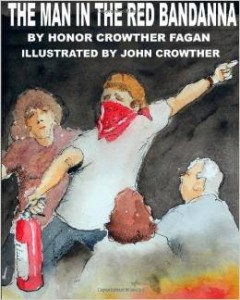courage (kur-ij, kuhr-ij)
(noun) The quality of mind or spirit that enables a person to face difficulty, danger or pain without fear; bravery.
Of the many positive character traits addressed in a character education curriculum, courage is foundational to helping students stand up for what is right, become leaders and achieve goals. Creating, acting out, analyzing and reflecting on scenarios that require courage can help students develop skills to resist negative peer pressure, speak out against injustice and make choices based on core values. Read more: Courage Scenarios to Use in the Classroom.
Read:
Spaghetti in a Hot Dog Bun written by Maria Dismondy, illustrated by Kim Shaw
“Lucy, Lucy, eats stinky food that puts us all in a big, bad mood!” How can Ralph be so mean, Lucy wonders? Lucy is one of a kind, and Ralph loves to point that out. Lucy’s defining moment comes when Ralph truly needs her help. Because she knows what she stands for, Lucy has the courage to make the right choice. This charming story empowers children to always do the right thing and to be proud of themselves even when they are faced with someone as challenging as Ralph.
There are many stories of bravery and courage. When have you taken yourself out of your comfort zone? What have you attempted and failed? Did you have the courage to try again? Got Grit? Prove it! Share your story below.







